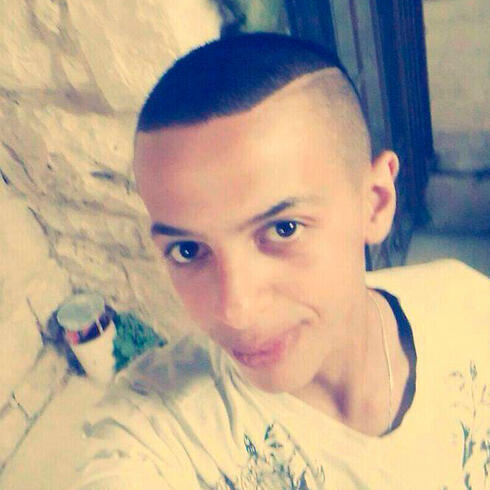Two weeks after the brutal murder of Mohammed Abu Khdeir – at the request of Ynet, represented by Lawyer Paz Mozer – the Petah Tikva Magistrate's Court cleared for publication the details into the killing. The names of the three central suspects in the investigation, however, remain under gag order.
Police filed preliminary indictments against the 30-year-old male and the two Jerusalem-area minors on charges of murder, abduction with intent to murder, arson, and attempted arson motivated by hate. Their arrest was extended for five days, by which time the suspects are expected to be formally charged by police.
- The investigation discovered that the day before the murder of Abu Khdeir, two of the suspects decided to attack an Arab teen. That same day they arrived in Shuafat, attacked a 9-year-old boy, and escaped. They returned the following day with another suspect, kidnapped Abu Khdeir, beat him, and stunned him.
After arriving in the Jerusalem Forest they tossed him out of the car, covered him with flammable material, lit him on fire, and escaped. They spent the following days attempting to sabotage and destroy evidence.
The suspects admitted to the crime during the investigation and re-enacted the events. They claimed they were motivated by the murder and kidnapping of Eyal Yifrach, Gil-Ad Shaer, and Naftali Frenkel.
Abu Khdeir's cell phone was found in one of the suspects' homes, among other forensic evidence linked to the incident.
The night of the murder the three suspects entered the Hyundai they used that night, driving through the Damascus Gate to arrive in Shuafat. They wandered the neighborhood for 20 minutes arguing over who they should kidnap: an adult male, a teen boy, or a woman.
The vehicle was driven by the prime suspect, in his thirties, which left the two other suspects – age 16 and 17 – in the back seat for fear they could not subdue a strong male alone.
Eventually one of the suspects said: "Come on, let's kidnap a teen. Women shout more than men."
One of the suspects told investigators they tried to hide their tracks: "We didn't want a violent murder. We didn't want blood. We didn't want to get dirty. We searched all sorts of Arab neighborhoods, we saw him alone. We went outside and forced him into the vehicle. We sped towards the Jerusalem Forest, arrived, spilled flammable material on him that we bought beforehand, lit him on fire, and went back."
After the murder, in order to manufacture an alibi, they drove to eat at a restaurant in Tel Aviv. On the way back they drove into Sur Bahar and tried to light Arab vehicles on fire, until they were noticed by local residents and were forced to escape.
One of the two minors suspected in the murder is a yeshiva student. The two are known to generally dress in "haredi-lite" – with black cloth pants and a white shirt. But they arrived in Shuafat wearing jeans and t-shirts, they claimed, to blend into the scene.
At the end of the court session one of the minor's attorney said that there are gaps between the police's allegations and the version of events by his client, who insists he was not an accessory to the murder or the events that preceded the killing of Abu Khdeir. The lawyer said the suit must prove a motive for his client to commit murder.
The lawyer representing the other minor in the case also claimed there were gaps between the police's suspicions and the version of events provided by his client, despite his confession and re-enactment.
The adult suspect's attorney claimed that he wanted to examine whether his client was fit for trial and to check the police claims regarding the confession and the re-enactment.
Raanan Ben-Zur contributed to this report.


